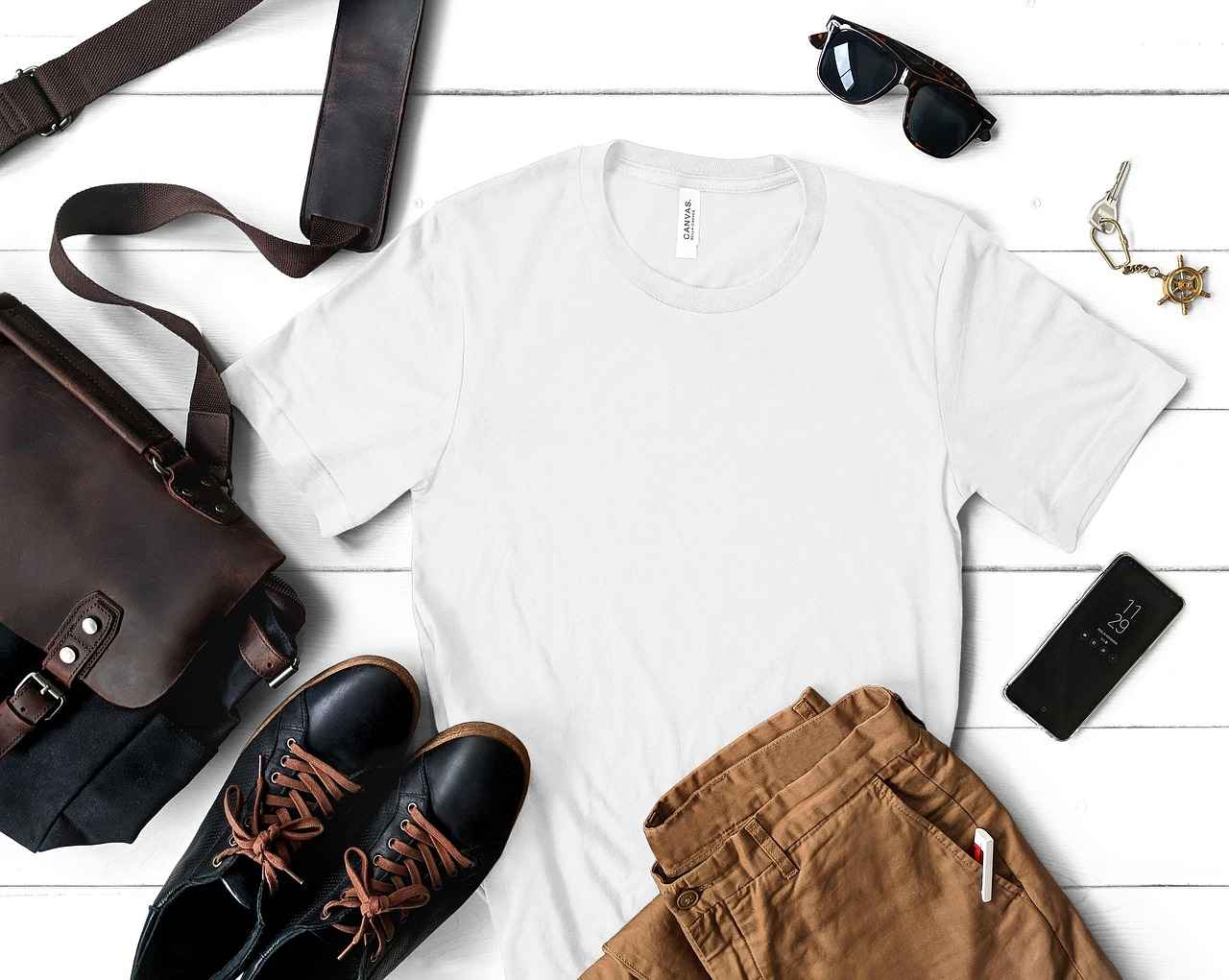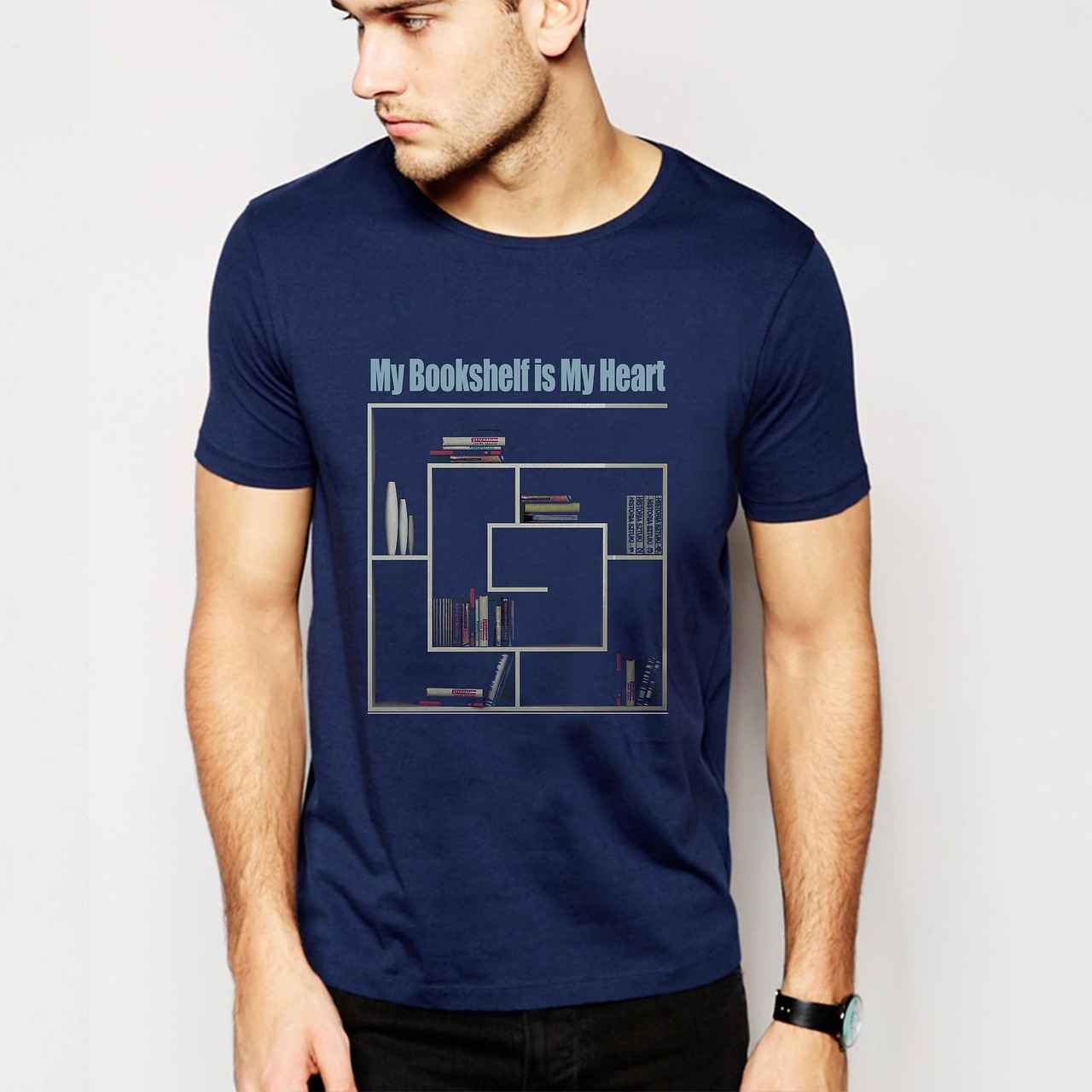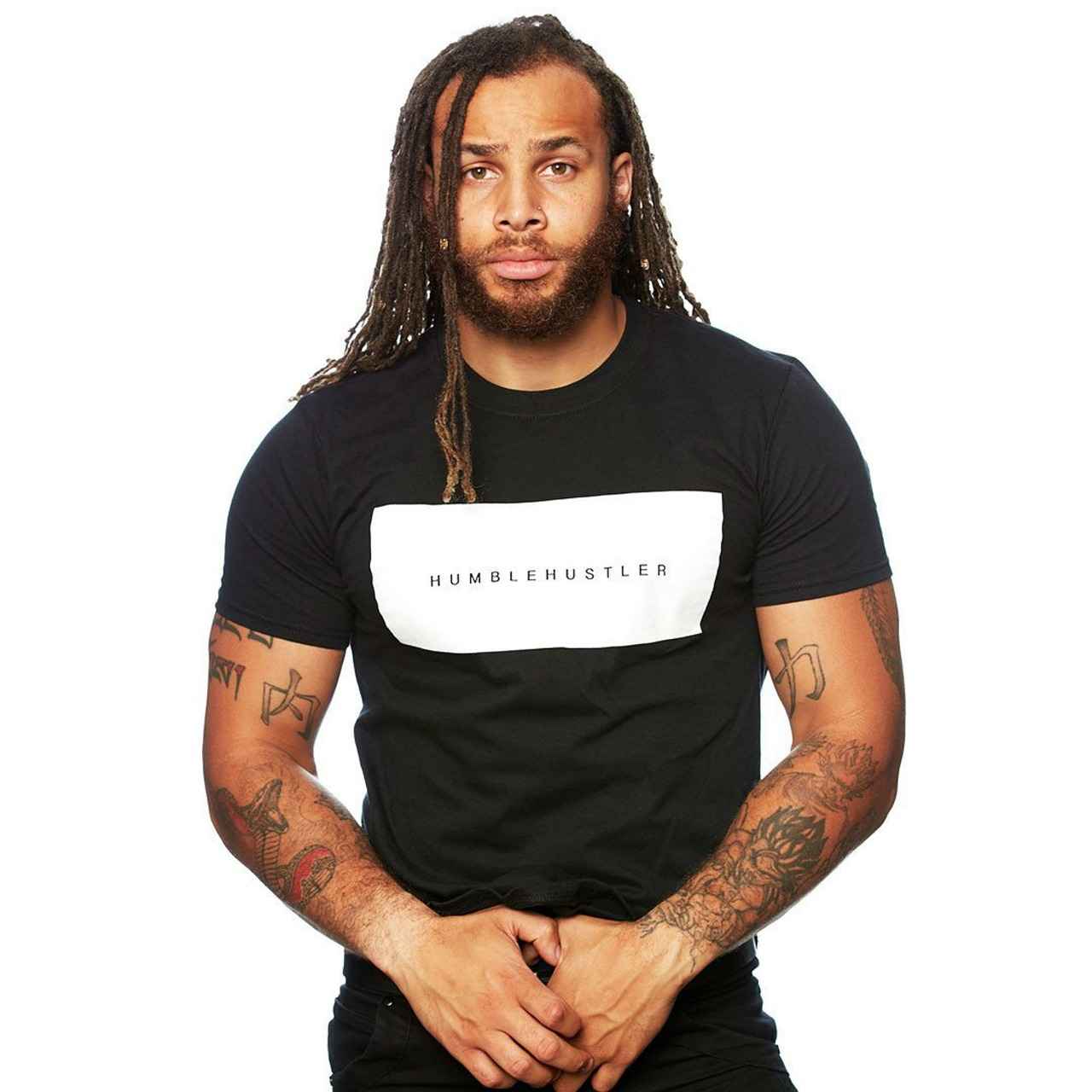How to Make Custom T-Shirts with No Minimum Order
This article provides a comprehensive guide on creating custom t-shirts without any minimum order requirements, covering everything from design tips to printing techniques and where to find reliable suppliers.
Understanding Custom T-Shirt Printing
Custom t-shirt printing allows individuals and businesses to create unique apparel. This section explores the different printing methods available, including screen printing, direct-to-garment, and heat transfer.
Benefits of No Minimum Order
Ordering custom t-shirts with no minimum allows for flexibility and personalization. This section discusses the advantages, such as catering to small events or personal projects without excess inventory.
- Cost-Effectiveness for Small Orders
- Bulk Pricing vs. Single Item Pricing
- Shipping Considerations
Small orders can often be more expensive per unit. Here, we analyze pricing structures and how no minimum orders can save money for individuals and small businesses.
Understanding the difference between bulk pricing and single item pricing is crucial. This part details how costs vary and when it makes sense to order in larger quantities.
Shipping costs can impact your overall budget. This section provides tips on how to manage shipping when ordering custom t-shirts, especially for smaller quantities.
Choosing the Right Design Software
Designing your t-shirt is a critical step. This section reviews popular design software options that cater to both beginners and experienced designers, ensuring high-quality results.
Finding Reliable Suppliers
Not all suppliers offer the same quality or service. This section guides you on how to identify trustworthy vendors who specialize in no minimum order custom t-shirts.
- Online Marketplaces vs. Local Printers
- Reading Reviews and Testimonials
Choosing between online marketplaces and local printers can affect your order experience. Here, we compare the pros and cons of each option to help you make an informed decision.
Reviews and testimonials can provide insights into a supplier’s reliability. This section emphasizes the importance of researching customer feedback before placing an order.
Design Tips for Custom T-Shirts
Creating an eye-catching design is essential for successful custom t-shirts. This section offers practical tips for designing graphics that resonate with your target audience.
- Color Selection and Combinations
- Typography and Font Choices
Color plays a vital role in design. Here, we discuss how to choose colors that complement each other and align with your brand or personal style.
The right typography can enhance your t-shirt design. This section covers how to select fonts that are readable and convey the intended message effectively.
Finalizing Your Order
Placing your order is the last step in the process. This section outlines what to check before finalizing your order to ensure everything is correct and meets your expectations.
This article serves as a comprehensive guide to creating custom t-shirts without any minimum order requirements. Whether you are an individual looking to express your creativity or a small business aiming to promote your brand, this guide covers essential aspects such as design tips, printing techniques, and reliable suppliers.
Understanding Custom T-Shirt Printing
Custom t-shirt printing offers a fantastic opportunity for individuals and businesses to create unique apparel. Various printing methods are available, including:
- Screen Printing: Ideal for bulk orders, offering vibrant colors and durability.
- Direct-to-Garment (DTG): Best for detailed designs and small runs, allowing for high-quality prints.
- Heat Transfer: Versatile and suitable for intricate designs, perfect for one-off pieces.
Benefits of No Minimum Order
Ordering custom t-shirts without minimum requirements provides flexibility and personalization. This is especially beneficial for:
- Small events where only a few shirts are needed.
- Personal projects that require unique designs without excess inventory.
Cost-Effectiveness for Small Orders
While small orders may sometimes seem more expensive per unit, understanding pricing structures can help you save money. No minimum orders allow you to avoid the financial burden of bulk purchasing.
Choosing the Right Design Software
Creating your t-shirt design is a critical step. Popular design software options include:
- Adobe Illustrator: Great for vector graphics.
- Canva: User-friendly for beginners.
- CorelDRAW: Excellent for detailed designs.
Finding Reliable Suppliers
Not all suppliers offer the same quality. To find trustworthy vendors specializing in no minimum order custom t-shirts, consider:
- Checking online marketplaces vs. local printers.
- Reading reviews and testimonials for insights into reliability.
Design Tips for Custom T-Shirts
Creating an eye-catching design is essential. Here are some tips:
- Color Selection: Choose colors that complement each other and align with your brand.
- Typography: Select readable fonts that convey your message effectively.
Finalizing Your Order
Before placing your order, ensure all details are correct to meet your expectations. Double-check designs, sizes, and quantities to avoid any issues.
##
Understanding Custom T-Shirt Printing
How to Make Custom T-Shirts with No Minimum Order
This article provides a comprehensive guide on creating custom t-shirts without any minimum order requirements, covering everything from design tips to printing techniques and where to find reliable suppliers.
Understanding Custom T-Shirt Printing
Custom t-shirt printing allows individuals and businesses to create unique apparel. This section explores the different printing methods available, including screen printing, direct-to-garment, and heat transfer.
Benefits of No Minimum Order
Ordering custom t-shirts with no minimum allows for flexibility and personalization. This section discusses the advantages, such as catering to small events or personal projects without excess inventory.
- Cost-Effectiveness for Small Orders: Small orders can often be more expensive per unit. Here, we analyze pricing structures and how no minimum orders can save money for individuals and small businesses.
- Bulk Pricing vs. Single Item Pricing: Understanding the difference between bulk pricing and single item pricing is crucial. This part details how costs vary and when it makes sense to order in larger quantities.
- Shipping Considerations: Shipping costs can impact your overall budget. This section provides tips on how to manage shipping when ordering custom t-shirts, especially for smaller quantities.
Choosing the Right Design Software
Designing your t-shirt is a critical step. This section reviews popular design software options that cater to both beginners and experienced designers, ensuring high-quality results.
Finding Reliable Suppliers
Not all suppliers offer the same quality or service. This section guides you on how to identify trustworthy vendors who specialize in no minimum order custom t-shirts.
- Online Marketplaces vs. Local Printers: Choosing between online marketplaces and local printers can affect your order experience. Here, we compare the pros and cons of each option to help you make an informed decision.
- Reading Reviews and Testimonials: Reviews and testimonials can provide insights into a supplier’s reliability. This section emphasizes the importance of researching customer feedback before placing an order.
Design Tips for Custom T-Shirts
Creating an eye-catching design is essential for successful custom t-shirts. This section offers practical tips for designing graphics that resonate with your target audience.
- Color Selection and Combinations: Color plays a vital role in design. Here, we discuss how to choose colors that complement each other and align with your brand or personal style.
- Typography and Font Choices: The right typography can enhance your t-shirt design. This section covers how to select fonts that are readable and convey the intended message effectively.
Finalizing Your Order
Placing your order is the last step in the process. This section outlines what to check before finalizing your order to ensure everything is correct and meets your expectations.
##
Benefits of No Minimum Order
Benefits of No Minimum Order
Ordering custom t-shirts with no minimum order requirements offers a range of advantages for both individuals and businesses. This flexibility allows for personalized creations without the burden of excess inventory. Below, we delve into the key benefits of opting for no minimum order custom t-shirts.
- Flexibility for Small Events: Whether you’re organizing a family reunion, a small business event, or a personal project, having the option to order just a few t-shirts means you can cater specifically to your needs without overcommitting.
- Personalization: Custom t-shirts allow for unique designs that reflect personal styles or brand identities. With no minimum order, you can create one-of-a-kind items that stand out.
- Cost-Effectiveness: While small orders can sometimes be more expensive per unit, no minimum orders can save you money in the long run. This section explores how pricing structures work and how you can manage costs effectively.
- Reduced Inventory Risk: By ordering only what you need, you avoid the risk of unsold inventory, which can be especially beneficial for startups or small businesses.
- Convenience: Many online platforms now offer easy-to-use design tools and straightforward ordering processes, making it simple to create and receive your custom t-shirts.
In conclusion, the benefits of ordering custom t-shirts with no minimum order requirements are significant. From flexibility and personalization to cost savings and reduced inventory risk, this option is ideal for anyone looking to create unique apparel without the hassle of large-scale orders.
##
Cost-Effectiveness for Small Orders
Cost-Effectiveness for Small Orders
When it comes to custom t-shirt printing, one of the most significant considerations for individuals and small businesses is the cost. This section delves into the financial advantages of ordering small quantities, particularly when there is no minimum order requirement.
| Order Type | Cost per Unit | Advantages |
|---|---|---|
| Small Orders | Higher | Flexibility, personalization, no excess inventory |
| Bulk Orders | Lower | Cost savings, ideal for larger events |
While bulk orders typically offer a lower cost per unit, ordering custom t-shirts in small quantities can be more beneficial for specific needs. Here are some key points to consider:
- Flexibility: No minimum order means you can create t-shirts for small events, family reunions, or personal projects without committing to large quantities.
- Personalization: Small orders allow for unique designs tailored to individual preferences, enhancing the overall experience.
- No Excess Inventory: Avoid the risk of leftover stock that might not sell, which can be a significant concern for small businesses.
Additionally, while small orders may seem more expensive per unit, they can save money in the long run by eliminating storage costs and reducing waste. It’s essential to analyze the pricing structures of different suppliers to find the best deal for your specific needs.
In conclusion, while bulk orders can provide cost savings, the flexibility and personalization offered by no minimum order custom t-shirts make them a practical choice for many individuals and small businesses.
##
Bulk Pricing vs. Single Item Pricing
Understanding Bulk Pricing vs. Single Item Pricing
When it comes to ordering custom t-shirts, understanding the difference between bulk pricing and single item pricing is crucial for making informed purchasing decisions. This section delves into the nuances of each pricing strategy, helping you determine when it makes sense to order in larger quantities.
| Pricing Type | Cost Per Unit | Best For |
|---|---|---|
| Bulk Pricing | Lower cost per unit | Large events, businesses needing uniform apparel |
| Single Item Pricing | Higher cost per unit | Personal projects, small events |
Benefits of Bulk Pricing
- Cost Savings: Ordering in bulk typically reduces the cost per t-shirt, making it more economical for large orders.
- Consistency: Bulk orders ensure that all items are identical in quality and design, which is essential for branding.
- Less Frequent Reordering: With a larger stock, you won’t have to reorder as often, saving time and effort.
When to Choose Single Item Pricing
- Testing Designs: If you’re unsure about a design, ordering a single item allows you to evaluate before committing to a larger batch.
- Unique Gifts: Custom t-shirts for personal gifts or special occasions can be ordered as needed without the pressure of excess inventory.
- Small Events: For small gatherings, such as family reunions or birthday parties, single item orders are often more practical.
In conclusion, understanding the differences between bulk pricing and single item pricing allows you to make better decisions based on your specific needs. Whether you’re looking to save costs or create a unique piece, knowing when to choose each option can significantly impact your overall budget and satisfaction with the final product.
##
Shipping Considerations
Shipping Considerations
When ordering custom t-shirts, especially in smaller quantities, shipping costs can significantly impact your overall budget. Understanding how to manage these costs is crucial for maximizing your investment. Below are some considerations and tips to keep in mind:
- Compare Shipping Options: Always compare different shipping methods offered by suppliers. Some may provide standard, expedited, or flat-rate shipping options, which can vary in cost and delivery time.
- Order in Bulk When Possible: If you have the means, consider ordering a larger quantity to take advantage of bulk shipping rates. This can often reduce the cost per item and shipping fee.
- Check for Free Shipping Thresholds: Many suppliers offer free shipping if your order exceeds a certain amount. Aim to meet this threshold if it makes sense for your needs.
- Local Pickup: If the supplier is local, inquire about the possibility of picking up your order to save on shipping fees.
- Timing Your Order: Plan your orders ahead of time. Avoiding rush shipping can save you money, so consider placing orders well in advance of any events.
- Packaging Considerations: Be aware that the packaging can also affect shipping costs. Suppliers may offer different packaging options that could be more economical.
By taking these factors into account, you can effectively manage shipping costs and ensure that your custom t-shirt order remains within budget. Always communicate with your supplier to clarify any shipping-related questions you may have.
##
Choosing the Right Design Software
Choosing the Right Design Software is a critical step in creating custom t-shirts that stand out. The right software can elevate your design quality and streamline your workflow, whether you’re a beginner or an experienced designer. Below are some popular design software options that cater to different skill levels and project needs.
- Adobe Illustrator: A professional vector graphics editor favored by many designers for its advanced features and flexibility. Ideal for creating intricate designs and logos.
- Canva: User-friendly and web-based, Canva offers a variety of templates and design elements, making it perfect for beginners looking to create simple t-shirt designs.
- Inkscape: A free, open-source vector graphics editor that provides powerful tools for creating scalable designs. It’s a great alternative for those who want advanced features without the cost.
- CorelDRAW: Another popular vector graphic software, known for its user-friendly interface and strong design capabilities, suitable for both beginners and professionals.
- Printful Design Maker: Specifically tailored for t-shirt printing, this tool allows you to create designs directly on the platform, simplifying the process from design to production.
When selecting design software, consider the following factors:
- Ease of Use: Choose software that matches your skill level to avoid frustration.
- Features: Look for tools that offer the specific functionalities you need, such as text manipulation or image editing.
- Compatibility: Ensure the software works well with your printing method and file formats.
- Budget: Consider whether you want a free tool or are willing to invest in a premium option for more advanced features.
In conclusion, the right design software can greatly enhance your custom t-shirt creation process. By evaluating your needs and the available options, you can choose a tool that helps bring your creative vision to life.
##
Finding Reliable Suppliers
Finding Reliable Suppliers is a crucial step when looking to create custom t-shirts with no minimum order. The quality of your t-shirts and the reliability of your supplier can significantly impact your overall experience and satisfaction.
Here are some key points to consider when searching for trustworthy vendors:
- Research Online: Start by browsing online marketplaces that specialize in custom apparel. Websites like Redbubble and Teespring offer a variety of options.
- Local Printers: Consider local printing shops that may provide personalized service and quicker turnaround times. They often have lower shipping costs compared to online suppliers.
- Check Reviews: Look for customer reviews and testimonials on platforms like Trustpilot or SiteJabber. Positive feedback can indicate a reliable supplier.
- Ask for Samples: Request samples before placing a large order. This will help you assess the quality of the fabric and printing.
- Compare Prices: Get quotes from multiple suppliers. Compare their pricing structures, especially when it comes to no minimum orders.
Online Marketplaces vs. Local Printers
Choosing between online marketplaces and local printers can affect your order experience. Online options often provide a broader selection, while local printers may offer more personalized service.
Reading Reviews and Testimonials
Reviews and testimonials can provide insights into a supplier’s reliability. Always take the time to research customer feedback before placing your order.
By considering these factors, you can find a reliable supplier for your custom t-shirts, ensuring a smooth and satisfactory experience.
##
Online Marketplaces vs. Local Printers
Online Marketplaces vs. Local Printers
When it comes to ordering custom t-shirts with no minimum order requirements, choosing the right supplier can significantly impact your experience and the final product. This section explores the pros and cons of online marketplaces and local printers, helping you make an informed decision.
| Criteria | Online Marketplaces | Local Printers |
|---|---|---|
| Cost | Often competitive pricing with frequent discounts | May have higher prices but offers personalized services |
| Turnaround Time | Usually faster shipping options available | Local pickup may reduce waiting time |
| Quality Control | Varies by seller; check reviews | Direct oversight of printing process ensures quality |
| Design Assistance | Limited; mostly self-service | Personalized guidance available |
| Shipping Costs | Can be higher for small orders | No shipping costs if local |
Online Marketplaces offer a vast selection of suppliers, making it easy to compare prices and find the right design. However, the downside is that quality can vary from seller to seller, necessitating thorough research and reading of customer reviews.
Local Printers, on the other hand, provide a more personalized service, often allowing you to see samples and discuss your design in person. This can ensure better quality control and a more tailored experience, although prices may be higher.
In conclusion, the choice between online marketplaces and local printers depends on your specific needs, budget, and the level of service you desire. Consider factors such as cost, quality, and turnaround time to make the best decision for your custom t-shirt project.
##
Reading Reviews and Testimonials
Reading Reviews and Testimonials is a crucial step in ensuring you choose the right supplier for your custom t-shirts. In today’s digital age, potential customers have the advantage of accessing a wealth of information through online reviews and testimonials. This section will explore the importance of these reviews and how they can aid in your decision-making process.
When considering a supplier, it’s essential to evaluate their reputation. Look for platforms where customers leave feedback, such as:
- Social media pages
- Review sites like Trustpilot or Yelp
- The supplier’s own website
Pay attention to both positive and negative reviews. A supplier with numerous positive testimonials is likely to deliver quality products and services. However, don’t overlook the negative reviews; they can provide insight into potential issues you may face.
Additionally, consider the following tips when reading reviews:
- Look for detailed feedback: Reviews that provide specifics about the ordering process, product quality, and customer service are more valuable than generic praise.
- Check for recent reviews: Ensure the feedback is current, as service quality can change over time.
- Identify recurring themes: If multiple reviews mention the same issue, it’s a red flag that warrants further investigation.
Moreover, don’t hesitate to reach out to previous customers if possible. Their firsthand experience can offer insights beyond what is available in written reviews.
In conclusion, reading reviews and testimonials is an indispensable part of your supplier selection process. By taking the time to research and analyze feedback, you can make an informed choice that aligns with your needs and expectations.
##
Design Tips for Custom T-Shirts
Design Tips for Custom T-Shirts
Creating an eye-catching design is essential for successful custom t-shirts. Below are some practical tips that will help you design graphics that resonate with your target audience.
- Color Selection and Combinations: Color plays a vital role in design. Choose colors that complement each other and align with your brand or personal style. Consider color psychology; for example, blue evokes trust, while red can signify excitement.
- Typography and Font Choices: The right typography can enhance your t-shirt design. Select fonts that are readable and convey the intended message effectively. Avoid using too many different fonts; typically, one or two is sufficient.
- Imagery and Graphics: Use high-quality images and graphics. Ensure that any images you incorporate are of sufficient resolution to avoid pixelation when printed. Vector graphics are ideal as they can be scaled without losing quality.
- Layout and Composition: Balance your design elements effectively. Use the rule of thirds to create a visually appealing layout. Ensure that the design is not overcrowded; white space can help the design breathe.
- Target Audience Consideration: Always keep your target audience in mind. What appeals to one demographic may not resonate with another. Conduct surveys or gather feedback on your designs to ensure they meet audience expectations.
- Mockups and Prototypes: Before finalizing your design, create mockups to visualize how the t-shirt will look. Use online tools or software that allow you to see your design on a t-shirt template.
By following these design tips, you can create custom t-shirts that not only look great but also effectively communicate your message. Remember, a well-designed t-shirt can make a powerful statement and leave a lasting impression.
##
Color Selection and Combinations
Color Selection and Combinations
When it comes to designing custom t-shirts, color selection is a crucial element that can significantly impact the overall appeal of the garment. The right colors not only enhance the visual aesthetic but also convey the intended message and evoke emotions.
Understanding Color Theory
To create an effective design, it’s essential to understand color theory. This includes the color wheel, which illustrates how colors relate to one another. Colors can be categorized into:
- Primary Colors: Red, Blue, Yellow
- Secondary Colors: Green, Orange, Purple (formed by mixing primary colors)
- Tertiary Colors: Combinations of primary and secondary colors
Choosing Complementary Colors
Complementary colors are those that are opposite each other on the color wheel. Using these colors together can create a vibrant look. For example, pairing blue with orange or red with green can make your design pop.
Analogous Colors for Harmony
For a more subtle and harmonious design, consider using analogous colors, which are next to each other on the color wheel. For instance, blue, blue-green, and green can create a serene and cohesive look.
Color Psychology
Colors evoke emotions and can influence perceptions. Here are a few examples:
- Red: Passion, energy, and excitement
- Blue: Trust, calmness, and professionalism
- Yellow: Happiness, optimism, and creativity
Testing Color Combinations
Before finalizing your design, it’s wise to test different color combinations. Utilize design software to visualize how colors interact on your t-shirt. This allows you to make adjustments and find the perfect palette that resonates with your target audience.
Conclusion
In summary, color selection and combinations play a vital role in custom t-shirt design. By understanding color theory, selecting complementary or analogous colors, and considering color psychology, you can create designs that not only look great but also communicate effectively with your audience.
##
Typography and Font Choices
Typography and Font Choices
Choosing the right typography is crucial for creating visually appealing custom t-shirts. The fonts you select can significantly impact the overall look and feel of your design. Here are some essential tips to help you make informed decisions about typography:
- Readability: Ensure that the fonts you choose are easy to read from a distance. Avoid overly decorative fonts that may hinder legibility.
- Brand Alignment: Select fonts that resonate with your brand’s identity. For example, a playful brand may benefit from rounded, fun fonts, while a more serious brand might opt for sleek, modern typefaces.
- Font Pairing: Combining different fonts can create a dynamic design. Use contrasting styles—such as a bold display font paired with a simple sans-serif—to enhance visual interest.
- Size Variation: Play with font sizes to create hierarchy in your design. Make the main message larger and more prominent, while keeping secondary information smaller.
- Color Selection: Ensure that your font color contrasts well with the t-shirt color. This helps in making the text stand out and improves overall visibility.
Popular Font Choices
| Font Type | Best Use |
|---|---|
| Sans-serif | Modern and clean designs |
| Serif | Classic and elegant styles |
| Script | Personalized and artistic looks |
| Display | Bold statements and headlines |
In conclusion, the right typography can elevate your custom t-shirt design, making it more appealing and effective. By focusing on readability, brand alignment, and thoughtful font choices, you can create designs that not only look great but also convey your message clearly.
##
Finalizing Your Order
Finalizing Your Order
Placing your order is the last step in the process of creating custom t-shirts. It’s essential to ensure that every detail is correct before you finalize your purchase. Here are some important considerations to keep in mind:
- Review Your Design: Make sure your design is exactly how you want it. Check for any typos, color discrepancies, or design misalignments.
- Confirm Sizes and Quantities: Double-check that you have selected the correct sizes and quantities for your order. This is crucial to avoid any unnecessary returns or exchanges.
- Check Printing Method: Ensure that the printing method you have chosen aligns with your design and fabric type. Different methods may yield different results.
- Understand the Pricing: Review the pricing structure, including any additional fees for setup, shipping, or rush orders. Knowing the total cost will help you stay within budget.
- Shipping Details: Confirm your shipping address and choose the appropriate shipping method. Be aware of delivery times, especially if you need the t-shirts for a specific event.
- Read the Fine Print: Familiarize yourself with the supplier’s policies on returns, exchanges, and cancellations. This can save you from potential issues later on.
By taking the time to carefully review each aspect of your order, you can ensure a smooth transaction and a final product that meets your expectations. Once everything is confirmed, proceed to place your order confidently!
Frequently Asked Questions
- What is custom t-shirt printing?
Custom t-shirt printing is the process of creating unique apparel tailored to your specific designs and preferences. It allows for various printing methods such as screen printing, direct-to-garment, and heat transfer, making it possible to express your creativity.
- Why should I choose a no minimum order option?
Choosing a no minimum order option provides flexibility, especially for small events or personal projects. It allows you to order exactly what you need without being stuck with excess inventory, making it ideal for individuals and small businesses.
- How can I save money on small orders?
While small orders can be pricier per unit, opting for no minimum orders can help you avoid bulk pricing that might not be suitable for your needs. Always compare different suppliers to find the best pricing structure that fits your budget.
- What should I consider when choosing a design software?
When selecting design software, consider your skill level and the features you need. Look for user-friendly options that offer templates and tools for both beginners and experienced designers to ensure high-quality results.
- How can I find reliable suppliers for custom t-shirts?
Research is key! Check online reviews and testimonials to gauge the reliability of suppliers. Compare online marketplaces with local printers to see which option suits your needs better, keeping quality and service in mind.












